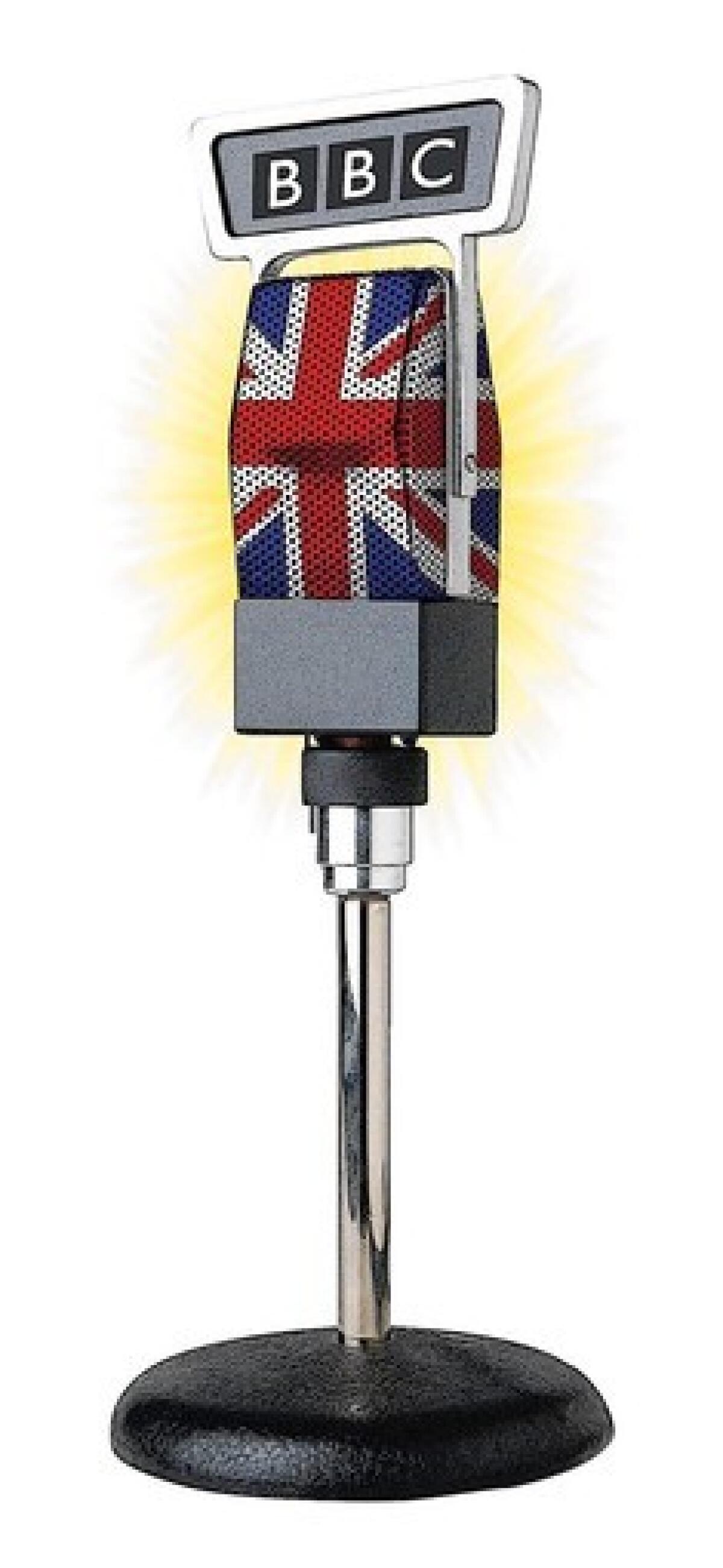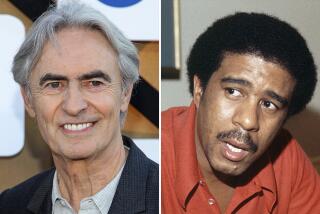Cultural exchange: Radio 4 in Britain is evidence that the medium is as popular as ever

Editors’ note: With this report, Sunday Calendar launches a new, weekly feature, “Cultural Exchange.” In it, Times foreign correspondents will explore cultural and entertainment trends, developments, personalities and debates around the world.
The phone can ring all it wants when Meg Donovan is listening to the radio. If she’s tuned in to a play or to the nightly installment of “The Archers,” a soap opera that’s been on the air in Britain for nearly 60 years, her callers can wait.
“I’m not prepared to miss anything, you see,” said Donovan, a retired schoolteacher. “I’m quite happy to be interrupted when watching television, but never while listening to the radio.”
There’s a set in nearly every room of her home in southwest England. Whenever the mood strikes, Donovan can listen to the news, improv comedy, a book reading, classical music, a new drama, a science lecture, the shipping forecast or a hundred-part series (really) on the history of the world.
It’s all part of Britain’s continuing love affair with the radio, even in an age of digital TV and Internet downloads. Video was supposed to kill the radio star, but the reality has turned out to be quite different: More Britons are listening to the radio than ever — more than 90% of all adults in this nation of 60 million people.
But it’s not just how many ears are listening — it’s how long they spend doing it. A comparable proportion of Americans also switch on their radios, but your average listener in the U.S. tunes in for only two-thirds as much time as your average Brit, who devotes 22 hours a week to a medium once thought in danger of becoming obsolete.
It’s not hard to see — or hear — why. With a few exceptions — such as paid satellite radio — twirling the dial on U.S. radio means sampling a limited diet of news, music and talk shows that hew to monotonously similar formats. Listeners here feast on an aural smorgasbord that encompasses not just standard music-and-chat but documentaries, sitcoms, original plays, quiz shows, poetry, in-depth interviews, a women’s hour, art reviews, sports commentary, religious discussions, political debate and much more.
It’s the reason that many Brits, pen in hand, comb through the weekly radio listings with enthusiasm and thoroughness. (Indeed, the definitive weekly bible to what’s on the air here, on radio and television, is still called the Radio Times.) Newspapers and magazines employ radio critics.
“I just love the way … you can turn the radio on and one minute you can be hearing about this amazing first image of Christ that was made in Britain, and the next minute you could be listening to a Beatles song, and the next you could be listening to a play or a classic serial,” said Kate Chisholm, the radio critic for the Spectator magazine. “So quickly you can just be transported from one to another.”
Critics and audiences alike praise offerings such as “A History of the World in 100 Objects,” a fascinating series exploring artifacts stored at the British Museum. Factual but also given to flights of fancy, the episodes cover objects ranging from the Rosetta stone to a golden llama fashioned by the Incas to an anti-capitalist plate made during the Russian Revolution.
The program, like so many others that have earned wide acclaim, is heard on BBC Radio 4, a channel with national reach and whose impact on this country can be hard to overestimate. With more than 10 million listeners a week, Radio 4 is, in many ways, the standard-bearer of quality radio in Britain. It’s been called “the greatest broadcasting channel in the world.”
It also explains why the U.S., unfortunately, will almost certainly never produce anything to equal it.
As one of the BBC stable of channels, Radio 4 is not a commercial enterprise. It’s publicly funded through the television license fee that all households with TVs in Britain must pay, which this year gave it a budget of more than $150 million — far larger than those of commercial stations, which were late to develop in Britain.
The guaranteed income enables the channel to hire top-flight talent, experiment and invest in programming shunned by commercial stations. For instance, Radio 4 remains one of the biggest commissioners of original plays in Britain. Its “Saturday Play” often showcases established actors and introduces audiences to new works by such well-known playwrights as Tom Stoppard.
Some of the country’s best-known comedians also have started their careers on the channel. The improv show “Whose Line Is It Anyway?” and the sitcom “Little Britain” began life as radio programs before migrating to television.
“The reason why radio sounds so different here from North America is completely a product of public funding,” said Grant Goddard, a London-based radio analyst. “It’s only because we’ve had public radio as the very beginnings of radio that we have such a wide variety of programs.”
Americans might be tempted to equate Radio 4 with National Public Radio, which is also lauded for its high-quality programs, but that would be incorrect, Goddard and other analysts say. Radio 4’s variety eclipses that of NPR. So does its influence on British society and public life. The “Today” morning news program on Radio 4 often sets the day’s national political agenda in a way that NPR’s “Morning Edition” does not.
Because it’s shielded from commercial and advertiser concerns, Radio 4 has never had to appeal to any specific demographic, said Mark Damazer, who served as head of Radio 4 for six years until leaving earlier this month. The average listener is 55 years old, but that has held steady over time, meaning that Radio 4 isn’t merely growing old with one particular set of listeners who are starting to die off.
In fact, it’s the second-most-listened-to channel in the country, after Radio 2, BBC’s music and chat network. In dynamic, cosmopolitan, well-educated, politically minded London, Radio 4 ranks No. 1.
“Their target might be ‘whoever has a curious mind,’ whether it’s urban or rural, male or female,” said David Hendy, a communications professor at the University of Westminster and the author of a history of Radio 4. “That makes it different from commercial operators who have to define a segment they’re going to target.”
But that doesn’t prevent the channel from inspiring a devotion among enthusiasts that can border on the “fanatical or fundamentalist,” as one writer put it.
Donovan, the retired teacher, wakes up listening to the “Today” program; in the evening, she unwinds by listening to the latest exploits of “The Archers,” a daily soap set in the countryside. Quintessentially English, the show premiered in 1951 and, incredibly, attracts more listeners now than ever.
Donovan, 66, has followed it for half a century and knows the characters inside and out.
“Once a day you’re just transported from reality,” she said. “You follow these people from their birth, and you will follow them to the grave. And that’s why you can’t miss it. They’re like members of your own family.”
henry.chu@latimes.com
![]() Sponsored Link: Amazon’s Radios
Sponsored Link: Amazon’s Radios
More to Read
The biggest entertainment stories
Get our big stories about Hollywood, film, television, music, arts, culture and more right in your inbox as soon as they publish.
You may occasionally receive promotional content from the Los Angeles Times.







